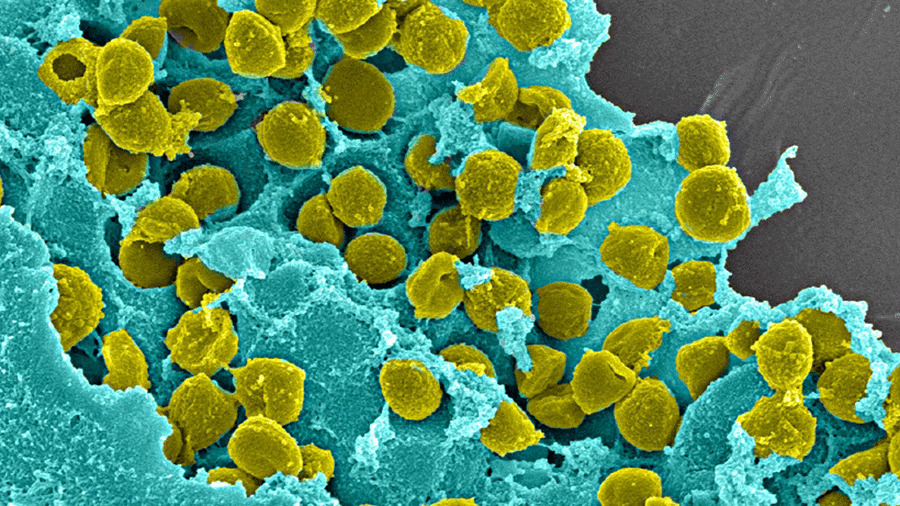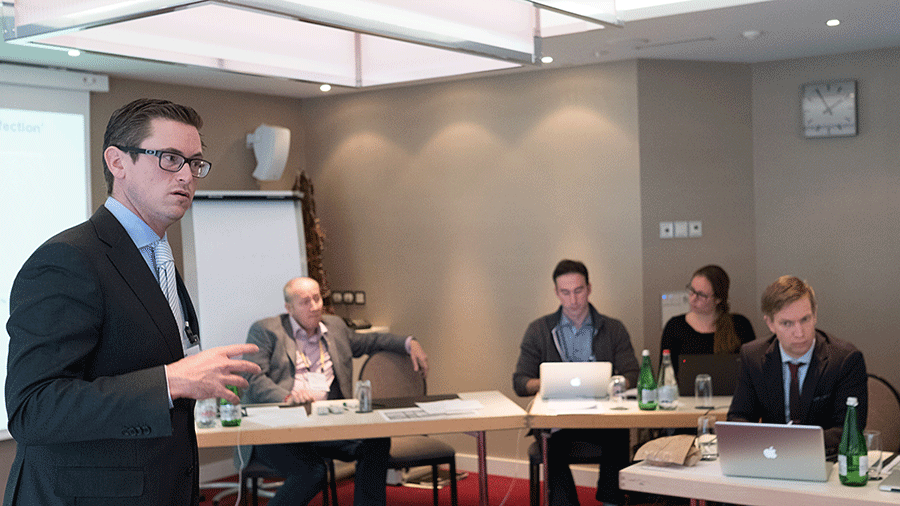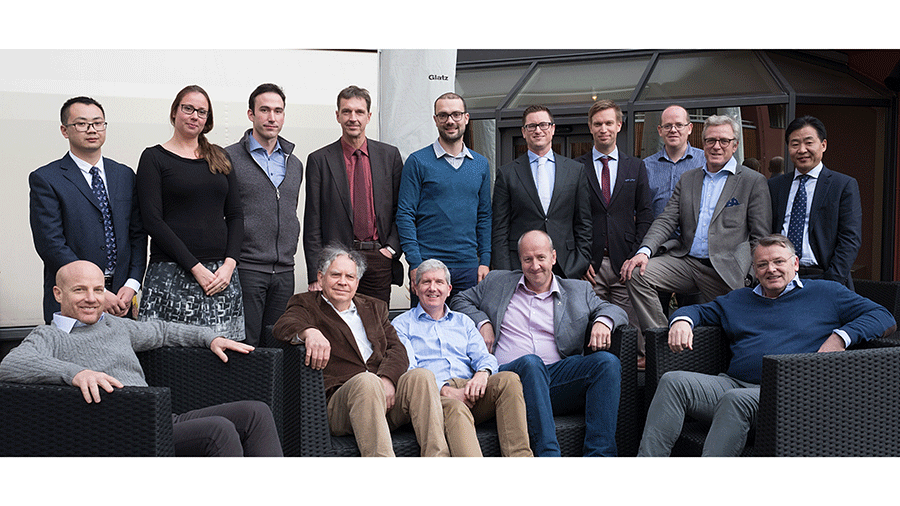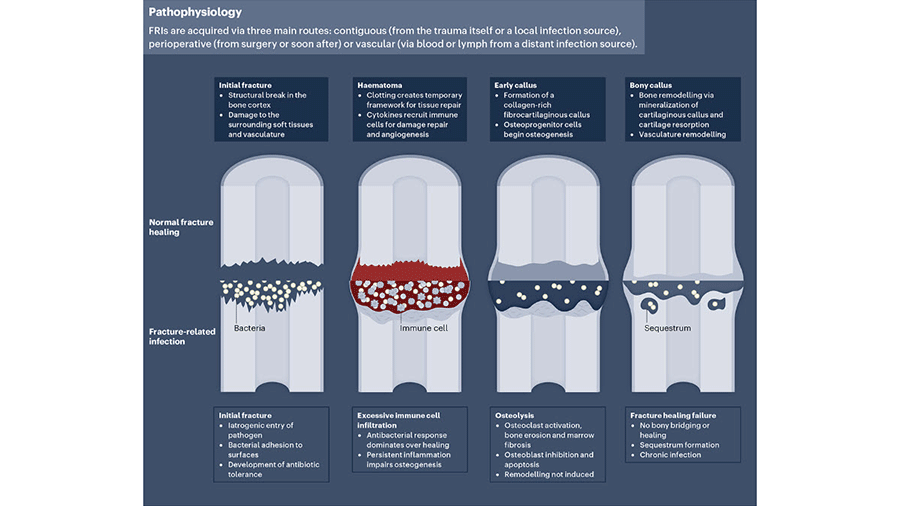Building global consensus around fracture-related infections: ARI researchers publish paper in 'Nature Reviews Disease Primers'

False-colored scanning electron micrograph showing a biofilm of Staphylococcus aureus on a titanium plate.
The prestigious peer-reviewed medical journal Nature Reviews Disease Primers has published a benchmark paper on fracture-related infection (FRI) that was led and co-authored by researchers at the AO Research Institute, Davos (ARI) together with colleagues from the AO's extended networks.
"This publication partially arises from the highly successful research produced by ARI and partners in AO Trauma's Clinical Priority Program (CPP) Bone Infection with several former ARI fellows and PhDs invited to co-author the paper, and it also benefited from the AO Innovation Translation Center's Anti-Infection Global Expert Committee," said ARI Director Prof Geoff Richards. Richards is the paper's corresponding and senior author.
"FRI is a global issue, and with the great reach of Nature's publishing platform, we hope our work can reach new audiences," said ARI Focus Area Leader for Infection Biology Fintan Moriarty, PhD, one of the paper's joint first authors.
FRI: coining and adopting new terminology for an important issue
Cross-pollinating scientific and clinical discoveries to move FRI research forward
Nature Reviews Disease Primers' mission is to provide a comprehensive overview of diseases and identify key open research questions. The FRI primer hits these marks, as it describes key concepts and pathological processes underlying FRI. AO Trauma's CPP Bone Infection's scientific lead Prof Edward Schwarz, director of the Center for Musculoskeletal Research, University of Rochester, US, contributed to the article's state-of-the-art basic biology related to FRI, including seminal work from his lab describing the invasion of the osteocyte lacuno-canalicular system by Staphylococcus aureus.
Further scientific expertise was provided to this groundbreaking paper by former ARI PhD student Marloes Hofstee; Alejandro Vallejo Diaz, a former ARI Medical Research Fellow and current orthopaedic trauma surgeon at Hospital Alma Mater de Antioquia, Medellín, Colombia; and Britt Wildemann, who works at Jena University Hospital, Germany, in the trauma department's hand and reconstructive surgery unit. Wildermann recently led the Nature Reviews Disease Primers' paper on non-union bone fractures, where ARI's Prof Martin Stoddart and Prof Geoff Richards were strongly involved last year, along with several AO surgeons (Dr Frankie Leung, Dr Rodrigo Pesantez, Dr Malcolm Smith, and Dr Jesse Jupiter).
Since FRI is a complex disease requiring the expertise of infectious disease physicians and surgeons, the Nature Reviews Disease Primers publication was an opportunity to describe the key concepts of the medical management of FRI, with contributions from James Cassat (Vanderbilt University Medical Center, Nashville, Tennessee, US) and Melissa Depypere (University Hospitals Leuven, Belgium) providing a broad international perspective to the subject.
This comprehensive FRI overview—written by scientists, trauma surgeons, and infectious disease physicians—is sure to reach a global audience with this high-impact publication. Richards said: "This publication is a testament to the AO's highly collaborative approach in which research, education, and innovation are cross-pollinated, leading to new discoveries and solutions that promote excellence in patient care and outcomes in trauma and musculoskeletal disorders."




